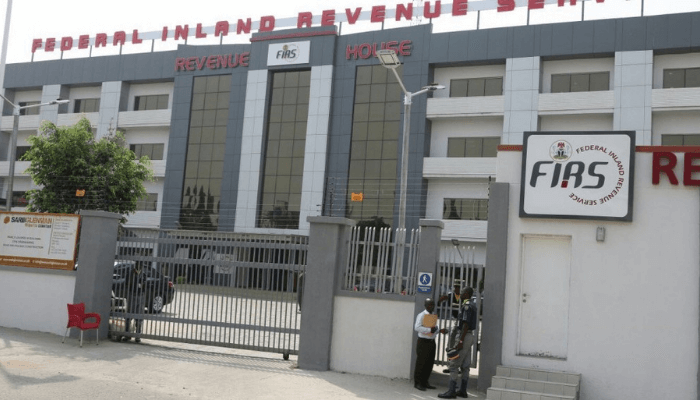The Federal Inland Revenue Service (FIRS) has announced the creation of a dedicated trust fund and an educational sponsorship scheme for the families of its staff members who tragically lost their lives in the recent fire incident at Afriland Towers, Lagos. The measure comes as part of a comprehensive support package aimed at easing the immediate and long-term burdens of the bereaved families, while reaffirming the agency’s commitment to the welfare of its workforce.
The Afriland fire, which broke out in the multi-storey building housing several corporate offices, claimed the lives of FIRS employees who were at work during the outbreak. The tragedy, described by many as one of the most devastating workplace incidents in recent years, has sent shockwaves across Nigeria’s corporate and government circles. In the aftermath, calls for stronger workplace safety measures and enhanced fire prevention systems in commercial buildings have intensified.

In response, the Executive Chairman of FIRS, Zacch Adedeji, announced that the agency would take full responsibility for ensuring that the families of the victims are not left to face hardship. The trust fund will provide financial support to cover immediate living expenses, while the educational sponsorship program will guarantee uninterrupted schooling for the children of the deceased staff members. According to Adedeji, the gesture is not only a duty of care but also a moral responsibility of the agency to those who dedicated their service to strengthening Nigeria’s tax administration.
He emphasized that the FIRS operates on the principle that its staff are its most valuable asset, and as such, the loss of even one life represents a deep wound to the institution. “We are heartbroken by this tragedy. These were dedicated men and women who gave their best in service to our nation. While we cannot bring them back, we can honor their memory by ensuring that their families do not suffer further,” he said.
The announcement has drawn praise from across the public and private sectors, with stakeholders commending FIRS for moving swiftly to address the welfare of the affected families. Labour unions and professional associations have also welcomed the initiative, describing it as a model of compassion and responsibility that other government institutions should emulate.
Beyond welfare measures, the incident has reignited discussions on occupational safety standards in Nigeria. Many observers argue that the fire underscores the urgent need for stricter compliance with safety regulations, fire preparedness protocols, and building code enforcement. Experts note that while Lagos and other major cities have witnessed rapid growth in high-rise office complexes, safety standards have not always kept pace with the expansion.
To this end, FIRS disclosed that it is conducting an internal safety audit across all its offices nationwide to prevent a recurrence of such tragedies. The agency is working with the Lagos State Safety Commission, fire service authorities, and independent consultants to review fire safety measures in office buildings where its staff are deployed. Adedeji further pledged that FIRS will push for stronger inter-agency collaboration to enforce safety regulations across commercial complexes.
The families of the deceased have expressed both grief and gratitude — grief at the sudden loss of their loved ones and gratitude for the commitment of FIRS to stand by them. Some family representatives noted that the educational sponsorship plan provides much-needed reassurance about the future of their children. For many, this initiative represents a ray of hope amid a dark and painful period.
Meanwhile, civil society organizations have called for a transparent management of the trust fund to ensure that resources reach the intended beneficiaries without bureaucratic bottlenecks. FIRS responded by stating that the fund would be managed by an independent board of trustees, which will include representatives of the victims’ families, staff unions, and external auditors to guarantee accountability.
The Afriland fire tragedy has also prompted questions about emergency response readiness in high-rise buildings across Nigeria. Witness accounts suggested delays in fire service arrival, raising concerns about response time and the adequacy of firefighting equipment. Safety experts have urged both public and private sector organizations to invest in modern fire detection and suppression systems, while also training employees on evacuation protocols.
In the wider context, the FIRS initiative reflects an evolving culture of corporate responsibility within Nigeria’s public institutions. By going beyond statutory obligations to provide comprehensive support for bereaved families, FIRS is setting a precedent that underscores the human side of governance. Many observers argue that such gestures also help to build morale among staff, reinforcing trust and loyalty within the workforce.
The long-term impact of the trust fund and educational sponsorship scheme will likely be closely monitored. If managed effectively, it could serve as a blueprint for similar interventions across government agencies and private corporations in times of tragedy. More importantly, it sends a strong message that the lives and well-being of employees remain central to institutional priorities, even in the aftermath of disaster.
As the families of the deceased prepare for burials and memorial services, the nation continues to reflect on the lessons from the Afriland fire. While the wounds remain fresh, the proactive measures taken by FIRS represent a commitment to both healing and reform. By ensuring that families are supported and safety standards are strengthened, the tragedy may yet drive meaningful changes that safeguard lives in the future.
Support InfoStride News' Credible Journalism: Only credible journalism can guarantee a fair, accountable and transparent society, including democracy and government. It involves a lot of efforts and money. We need your support. Click here to Donate
